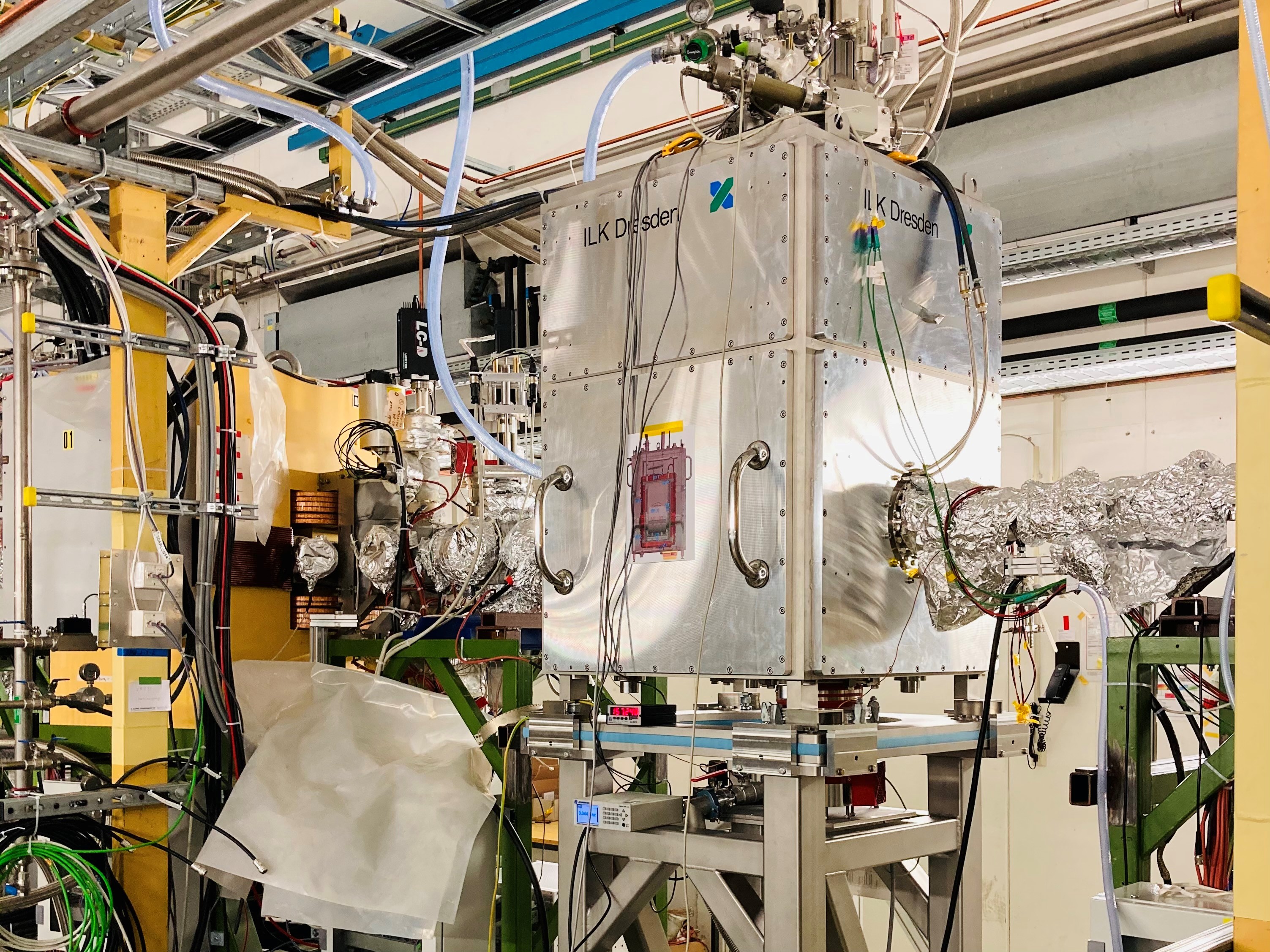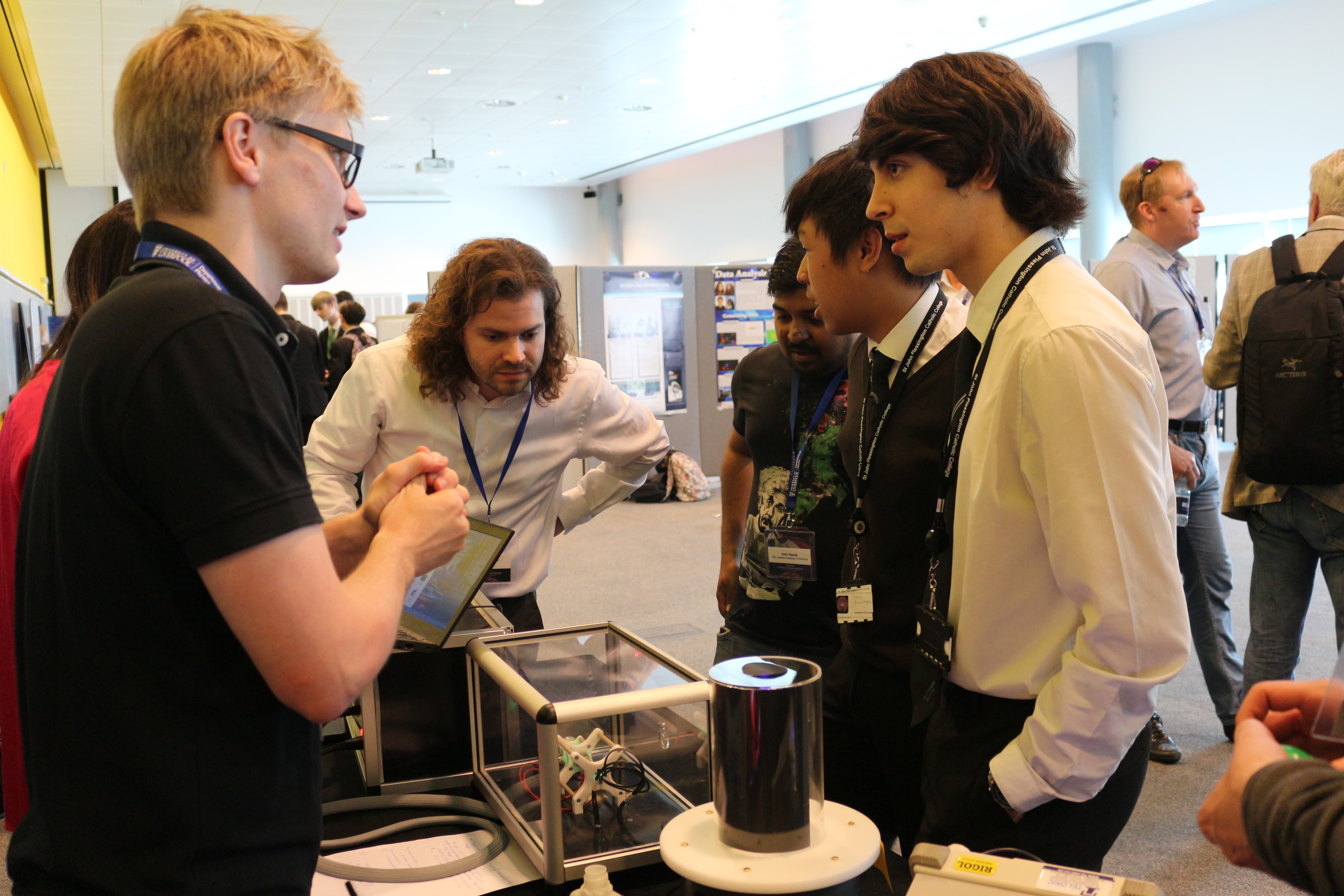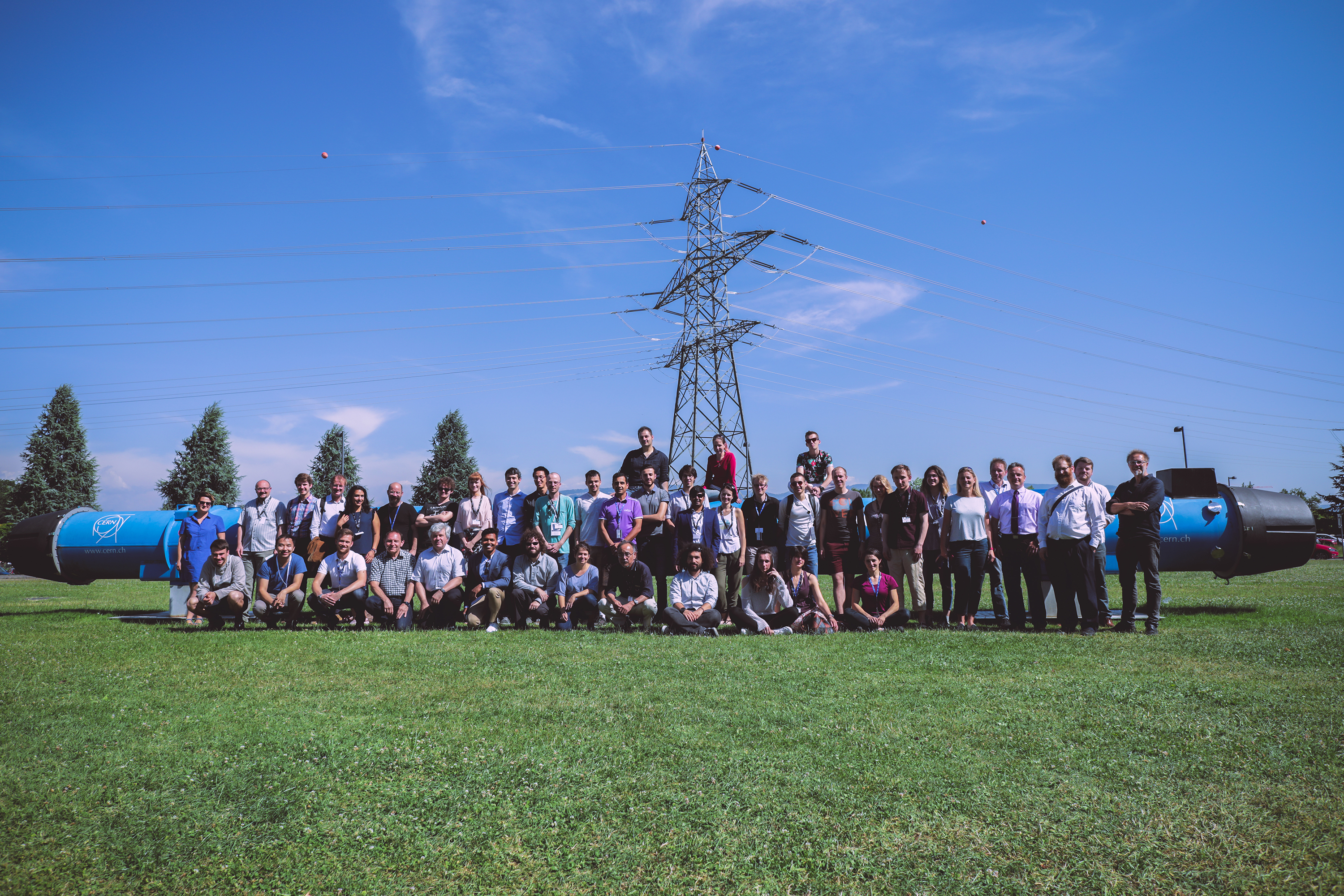The pan-European Accelerators Validating Antimatter physics (AVA) is an Innovative Training Network (ITN) within the H2020 Marie Skłodowska-Curie Actions that started in early 2017. The foundation of the AVA Network is the training and continued development of 16 AVA Fellows who contribute to fundamental questions around antimatter. To mark the end of a hugely successful project, with the final report accepted by the European Commission, the consortium looks back at the network’s journey.
The 35 institutions and beneficiary partners involved in AVA provided a multidisciplinary, international and intersectoral environment for the Fellows, their individual research projects and training. The Fellows were based at their host institutions, but also ventured out to other project partners to learn from experts there and join forces with other AVA colleagues. Scientific and technical results were published in peer-reviewed journals, often high impact factor journals with excellent media coverage, and presented at international conferences and workshops. Together, through fruitful collaborations, the Fellows thus far have contributed to nearly 60 peer reviewed papers and conference proceedings.
One of these publications was a paper in Nature co-authored by AVA Fellow Markus Wiesinger (Max Planck Institute) as a member of the BASE collaboration. Markus’ work focused on Sympathetic Cooling of Antiprotons (antimatter particles) in penning traps, a device for the storage of charged particles. Implementation of sympathetic cooling of single (anti)protons will provide particles with low radial energy suitable for high-precision g-factor measurements with orders of magnitude faster preparation time. The developed cooling technique is also applicable to sympathetic cooling of highly charged ions.
Fellow David Haider, based at the Beam Instrumentation group at GSI, carried out Ultra-sensitive Beam Intensity Measurements and helped develop a Cryogenic Current Comparator (CCC) which allows non-destructive intensity monitoring of (anti)particles in storage rings and transfer lines with great precision. As part of this work David introduced an absolute DC beam current measurement for beam intensities below 100 nA that are stored at the low energy storage ring CRYRING. At the end of his project he helped install the CCC at CRYRING which was followed by a successful first beam time.

Bianca Veglia (University of Liverpool/Cockcroft Institute) was selected to give a contributed talk at the 12th International Particle Accelerator Conference (IPAC) in May 2021. She presented the results from her studies into Beam Stability and Life Time in Low Energy Storage Rings, in particular simulations of electron cooling dynamics for the Extra Low ENergy Antiproton (ELENA) ring. Realistic 3D simulations of the beamlines were produced to investigate the beam quality at the delivery point, showing efficient transport. Similar simulation procedures can now be applied also to other low energy antiproton and ion rings.
These three projects are only a selection of the work achieved within AVA. Information about all of the AVA projects and their achievements can be found on the AVA website.
The interdisciplinary AVA training has broadened the Fellows’ skills significantly. In addition to working on their individual research projects, each one of them received wider training through AVA schools and workshops, secondments to partner institutions and opportunities to participate in international conferences. Through this approach, the AVA Fellows gained significant exposure and build close connections with the wider scientific community and training included dedicated researcher skills trainings e.g. focusing on the principles of project management and science communication. These events helped improve their employability and this comprehensive training is expected to prepare them well for future careers in both the academic and industry sectors.
The methodology behind this training approach has been developed by AVA Coordinator Professor Carsten P Welsch based at the University of Liverpool/Cockcroft Institute who, over the last decade, has been the driving force behind large ITNs in accelerator science and technology where these trainings already proved successful. Acknowledged by the European Commission as “best practice”, the AVA training has once again produced a large cohort of experts in a high impact area.
In addition to research and training, the Fellows have been heavily involved in dissemination and communication activities in AVA. The network organized outreach activities, such as the Marie Curie Day 2017, the very successful AVA film and the Symposium Accelerators for Science and Society, that had global reach and communicated the research findings within AVA, and the challenges of antimatter research to targeted communities around the world. The AVA website acted as a central communication hub and provides information about all aspects of the Network, and is regularly updated with project news.
An integral part of the Fellows’ training were outreach activities which included visits to schools, public talks, participation in open days, and the development of innovative hands-on demonstrations. An impressive tally of over 90 outreach activities were undertaken by the Fellows to help spread the word about antimatter research and make this topic accessible for a non-scientific audience.

In September 2020, nearly four years after the start of the project, the Fellows would have been presenting their achievements at the network’s final conference EXotic Atoms (EXA) on muonic, pionic, kaonic, and antiprotonic atoms and related topics. However, with the impact of the corona pandemic, the physical conference has been replaced by an online meeting scheduled for 13-17 September 2021. EXA2021 is being organized by AVA Partner Stefan Meyer Institute for Subatomic Physics of the Austrian Academy of Sciences. The AVA project is supporting this important conference for which the registration is open until 31 August 2021.
Professor Carsten P Welsch said: "AVA enabled an interdisciplinary and cross-sector R&D program on antimatter research. The actions undertaken, with a particular focus on active research links between individual Fellows, ensured highest quality research and training in this field. The project has realized enormously successful outreach and dissemination activities that had global reach and impressive impact. The project has also expanded the AVA network with new partners, and has helped to raise awareness among the general public in general, and school children in particular, about the challenges of antimatter research."
After such a successful project, the consortium will continue its communication and dissemination activities and also plans to organize a number of workshops and events for the antimatter and low energy ion communities. For those interested in applying for a MSCA network, the University of Liverpool/Cockcroft Institute is offering a workshop on “MSCA Networks - Training the next generation through collaborative programmes” on 29 September 2021. The event will provide participants with an in-depth overview of the Marie Skłodowska-Curie Actions Doctoral Networks scheme and explain the key issues relating to planning, writing and submitting a competitive proposal. Participation is free and registration is now possible via the workshop homepage.
This project has received funding from the European Union’s Horizon 2020 research and innovation programme under the Marie Skłodowska-Curie grant agreement No 721559.

